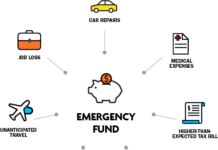As folks approach their golden years, one of the biggest things they worry about is how to keep more money in their pockets by reducing tax liabilities. Luckily, there are a bunch of different strategies seniors can use when it comes to tax planning that’ll help them minimize expenses and maximize retirement income. Below we’ve put together six key tips for keeping your hard-earned cash where it belongs.
1. Maximize Retirement Contributions
One surefire way to knock down your taxes as you move towards retirement is by maximizing contributions to your IRA or Roth IRA if you’re over 50 (an extra $1K), or adding funds to other qualified plans like a 401(k) if you’re over 60 (up to an additional $6.5K). These investments will lower what’s left over on which Uncle Sam gets his hands – and the less taxable income you have, the smaller your overall tax bill.
2. Take Advantage of Charitable Donations
If charitable causes speak to your heartstrings, know that making donations can also give back at tax time too! Deductible donations include up to 60% of adjusted gross incomes for taxpayers who itemize deductions – while there’s even better news for those using standard deductions. You can still deduct up to $300 in cold hard cash given away throughout the year.
3. Consider Long-Term Care Costs
When it comes down to assisted living or nursing home care costs – senior citizens should bear in mind that long-term care tends to be a quite pricey affair altogether.
However, with proper foresight and planning ahead come some benefit opportunities regarding long-term care costs such as tax credits/deductions available from spending amounts exceeding 7.5% of said senior’s annual income on medical expenses including these level-of-care necessities themselves!
4. Use Health Savings Accounts (HSAs)
HSAs are health savings accounts meant specifically for people enrolled into high-deductible insurance policies. Contributions made into these special accounts can then be used tax-free when paying for medical expenses – what’s more, they’re also deductible on your taxes. Using an HSA is a great way to reduce taxable income and save cash earmarked specifically for health-related needs.
5. Consider Roth Conversions
Seniors with traditional IRAs or other qualified retirement plans should consider funneling them over to Roth IRAs account types that offer significant long-term gains: Tax free withdrawals in later life!
Why? With the likelihood of being part of higher brackets at that time now eliminated due their conversion, seniors stand to benefit greatly from this transition – despite the initial obligation for payment on said converted amounts upon switch-over!
6. Manage Required Minimum Distributions (RMDs)
If you have money saved up in traditional IRA or other qualifying funds by age 72, congratulations! You’ll need to start taking required minimum distributions (RMDs). If you don’t take it out according to schedule, there are drastic penalties involved so keep track closely here.
But if done correctly through methods like charitable donations or investing strategically, RMDs will help further minimize those dreaded taxes come withdrawal time.
Final Thoughts
There are several ways seniors can decrease tax liabilities and hold onto more moolah during retirement.
Whether it’s maximizing contributions towards retirements savings vehicles, leveraging HSAs, planning ahead regarding long term care costs, using Roth conversions judiciously, or managing RMD schedules properly, all senior citizens who want optimal outcomes owe themselves some personalized guidance from either financial advisors or tax professionals












